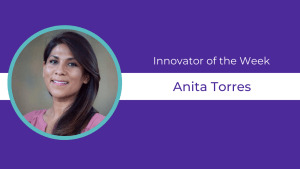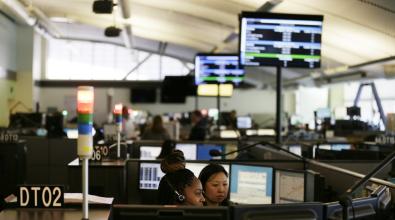Engaging youth with programming that sets them up for success

Title: Library Services Manager
City: Pomona, Calif.
When Anita Torres took over at Pomona’s public library in July of 2020, the building was still shut down due to COVID. She was all alone with the books. “I didn’t meet any of my staff until months later,” she remembers. “At first, it was just through Zoom.”
A year later, the library felt more vibrant than almost anyone could remember. The city took advantage of the shutdown to remodel the outdated building’s lobby and enliven the children’s room with a bright mural. Longstanding budget cuts were reversed, enabling Torres to expand open hours. “When we reopened,” Torres says, “it was like a grand reopening on a larger scale.”
Now Torres, who came to Pomona after 20 years of working in libraries in two other cities in the Los Angeles suburbs, is trying something new to her. She’s participating in an innovation training program via the Bloomberg Harvard City Leadership Initiative. Together with Mayor Tim Sandoval and leaders from across more than a half dozen other departments, Torres is learning how to use human-centered design to solve problems alongside residents.
This city team is working on a critical issue: How to engage more youth aged zero to five in educational and social programming that sets them up for success in school. They started out by interviewing parents, teachers, and leaders at preschools and other organizations that serve youth. For a group of problem solvers used to working fast, Torres says, this felt like a roundabout way to begin — but they came to appreciate how this research helped them understand the problem they’re working on at a deep level.
For example, the interviews identified a cultural barrier with youth programming they had not considered. While many parents are aware of preschool options, the team found, some parents feel strongly that young children should just stay home. That thinking has only deepened during the pandemic.
“We found there’s a big difference between kids who had exposure to preschool and transitional programs and other opportunities and those who didn’t,” Torres says. “So we’re trying to figure out: Do we not have enough programming? Do we not have the right kind? Are the parents not informed? What other barriers are there?” Later in the innovation training, the Pomona team will collaborate with residents to come up with potential solutions — and prototype them in hopes of developing some pilot programming.
For Torres, some of this innovation approach feels brand new, but a lot feels natural to her profession. Librarians are used to asking residents what they need and pointing them toward resources. “I’ve learned from working at the library and doing programming here that you can’t assume you know what people want more than they do themselves,” Torres says. “We’re human-centered, for sure.”
Pro tip: “To be innovative, you have to have some level of curiosity about the world. Don’t assume you have the answers.”

